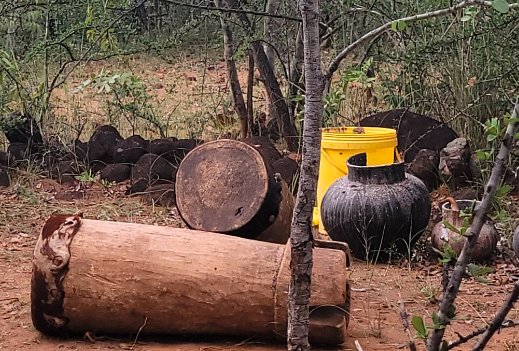Chipinge, Zimbabwe – 23 October 2025In Chipinge’s busy streets, a young man in his early 20s has built a small but steady business selling Econet airtime and SIM cards from a makeshift stall outside the NSSA building. Known only as Tapiwa to his regular customers, he starts his day at dawn, greeting passersby with a smile and quick service, turning a simple spot into a hub of honest income amid tough economic times. What began as a way to survive unemployment has grown into a daily hustle that earns him enough to eat, save, and dream bigger, proving that street smarts and hard work can light the path for Zimbabwe’s youth.
In markets spots buzz around landmarks like the NSSA office, Tapiwa’s story stands out as a real example of grit. Every morning, he sets up his wooden table loaded with colorful airtime vouchers and SIM card packs. By evening, he’s wrapped up dozens of sales, chatting with farmers heading to the bus stop, office workers on lunch breaks, and students rushing home. “It’s not easy, but it’s mine,” Tapiwa says with a grin, wiping sweat from his brow. His earnings about US$10 to $15 a day after costs cover basics like rent and food, and even let him send a little home to his family in a nearby village. This isn’t just vending. In his own words he notes, “Kuchayekoobuda” a bold statement that means that the job gets the bills paid. This goes against the idea that only office jobs bring real money. For young people here, facing sky-high unemployment, Tapiwa’s stall is a shining light, showing that starting small on the street can lead to self-made success.
But no road to riches is straight, and Tapiwa’s hustle comes with real bumps. Like many small sellers in growing towns like ours, he battles two big headaches that test his every move. These aren’t excuses to quit.This is the fire that pushes him to get smarter and tougher.
First off, money is tight. Starting capital for Tapiwa was just a handful of dollars scraped from odd jobs and family help. For airtime sellers, cash means stock. More money buys more vouchers and SIMs in bulk, which means cheaper prices from wholesalers and fatter profits. Right now, he buys small batchessay, $20 worth at a time. That gets him okay deals, but not the deep discounts big buyers snag. It also means trips back to the supplier every couple of days, eating up hours he could spend selling.
Picture this; a rush-hour crowd wants high-value bundles for weekend calls, but his stock runs low. He has to say no, watching cash slip to the shop down the road. It’s frustrating, capping how fast he can grow. With extra funds, though, Tapiwa could stock up big,get better prices, keep stock full during busy times, and even add extras like phone chargers or earbuds. That would boost his daily take-home by 30% or more, he figures. Stories like his scream for help to local NGOs like the Network for Community Development (NCD)depicts that small loans or youth savings clubs can be impactful and a $50 boost can spark real change in a spot-on business.
Then there’s the crowd of competitors. Chipinge’s streets are packed with copycats now, thanks to how easy and quick airtime selling seems. What was once a quiet niche is now a battlefield, with five or six lads hawking the same stuff within a stone’s throw. Healthy rivalry? Sure, in theory. But when everyone’s doing the same trick, it squeezes everyone thin. Prices drop to razor edges just to grab a sale, nibbling at profits like termites on wood. Customers are few too, instead of 10 buyers in an hour at Tapiwa’s spot, he might snag only four, the rest lured by a rival’s shout or a penny-cheaper deal. To stay afloat, it’s not enough to just show up. Tapiwa shines by knowing his crowd: stocking popular $1 bundles for daily top-ups, cracking jokes to build trust, and staying open rain or shine. He listens too , if folks want more data SIMs for Whatsapp, he adjusts fast. It’s exhausting, but it works. This boom-and-bust of hot ideas gone viral teaches a lesson: copy the winner, but add your twist, or get left behind.
Through it all, Tapiwa’s vibe stays upbeat, like a drumbeat calling others to join the march. He’s no stranger to the dark side pulling at idle youth, drugs lurking in corners, petty crime as a quick fix. But he waves it off. “This stall? It’s clean money. Hard, yes, but it builds you up, not breaks you down.” He urges mates his age: ditch the shortcuts, grab a hustle that’s legal and yours. Sell veggies, fix bikes, hawk crafts, anything that pays fair and keeps your head high. In a country where jobs are scarcer than rain in drought, his words hit home. Tapiwa isn’t begging for pity; he’s selling a vision of control, where you call the shots on your life. One day, he dreams of a proper kiosk, maybe even branching to money transfers. For now, each sold SIM is a step there.
Tapiwa’s tale ripples wider than his stall’s shadow, spotlighting truths about life in places like Chipinge. First, street trade is the unsung hero holding families together when factories close and offices cut staff. It’s raw, flexible, and feeds thousands where suits and ties fall short. Second, our young ones need real backup, not just cash handouts, but chats with mentors on pricing tricks, saving tips, or spotting fresh markets. Imagine co-ops linking sellers to cheap bulk buys or apps tracking hot trends. Third, and deepest, fair work fights the bad stuff head-on. A kid stacking vouchers all day has no bandwidth for trouble; purpose plugs the holes where despair sneaks in.
In the end, this unnamed vendor – Tapiwa to us who buy from him – isn’t just peddling airtime. He’s a fighter in Chipinge’s economic ring, dodging punches from broke pockets and rival elbows, but landing jabs of hope every sale. His struggles mirrors Zimbabwe’s soul, tough, clever, always eyeing tomorrow. To the youth scanning these words, the street’s waiting. Grab what’s in your hand, a table, a smile, a plan and hustle honest. Your future is not handed; it’s hustled, right here under Chipinge’s sun.













